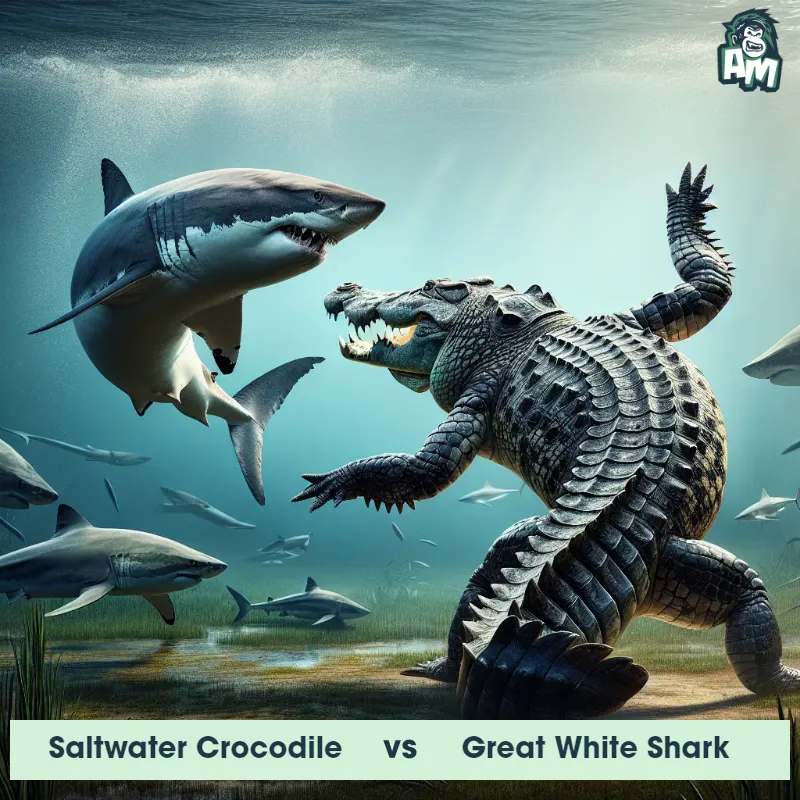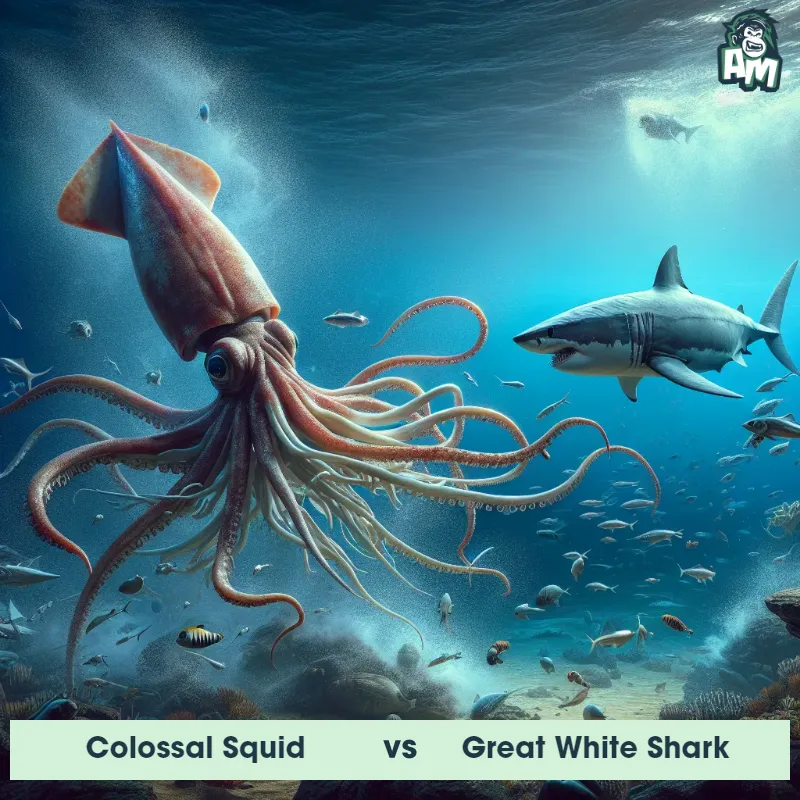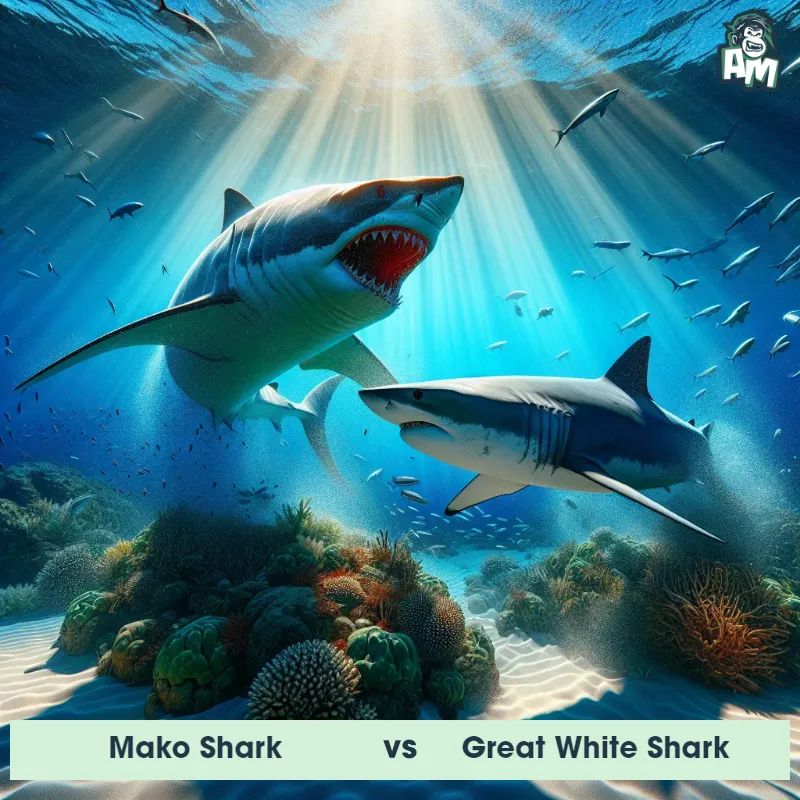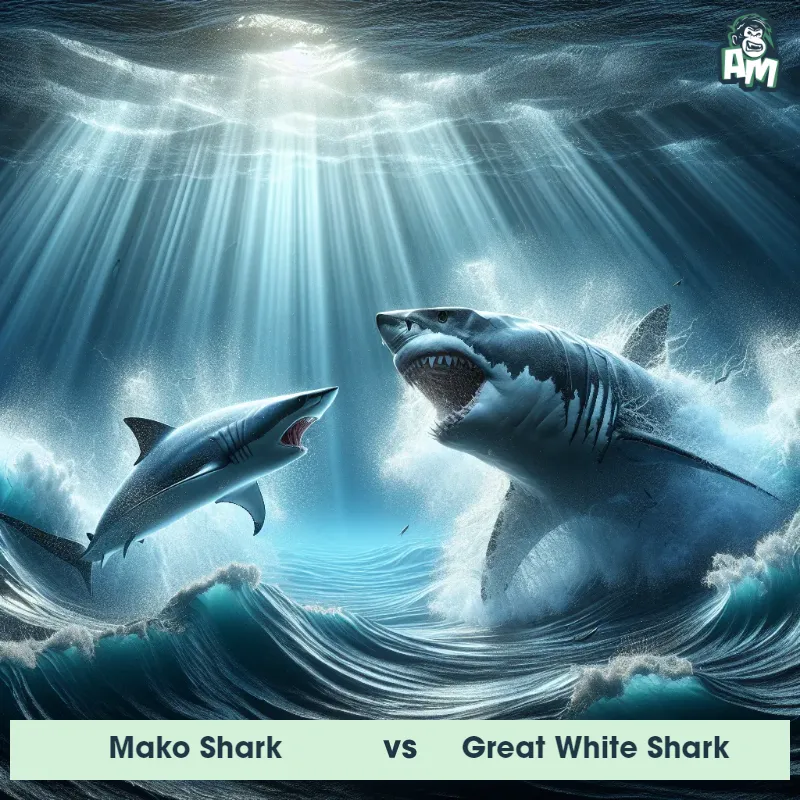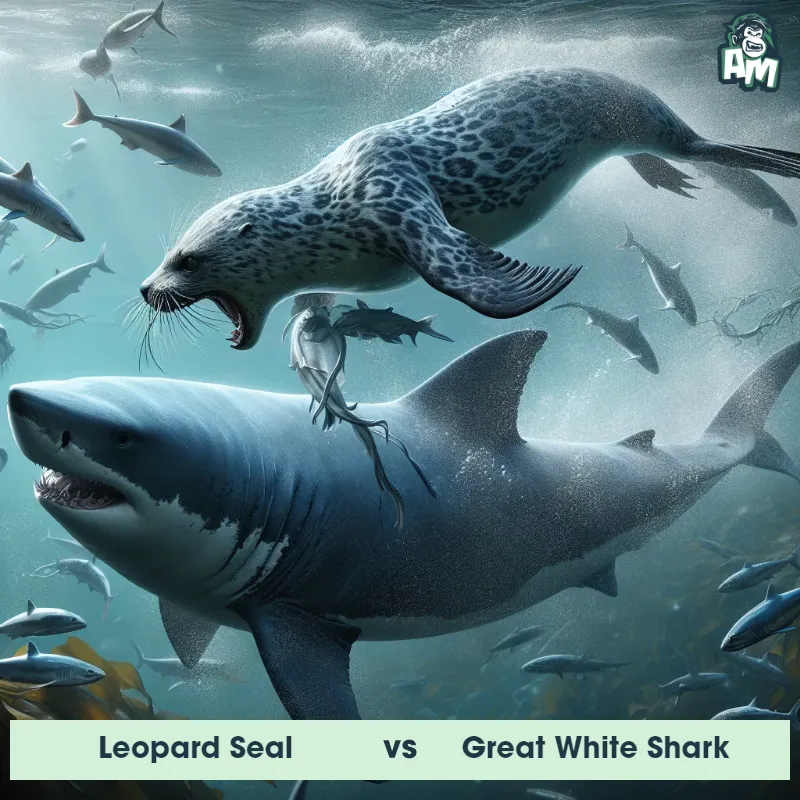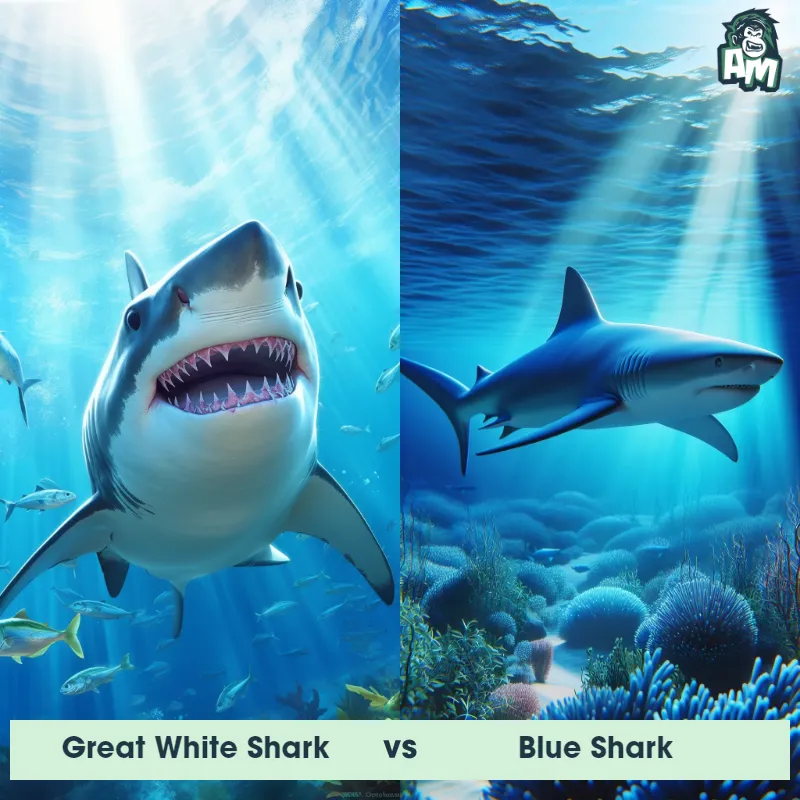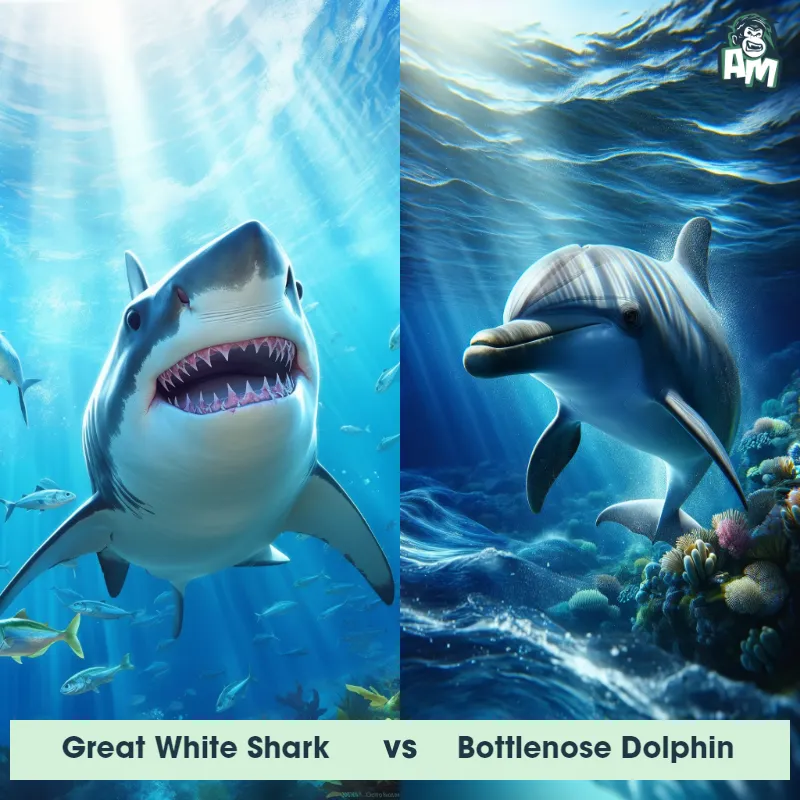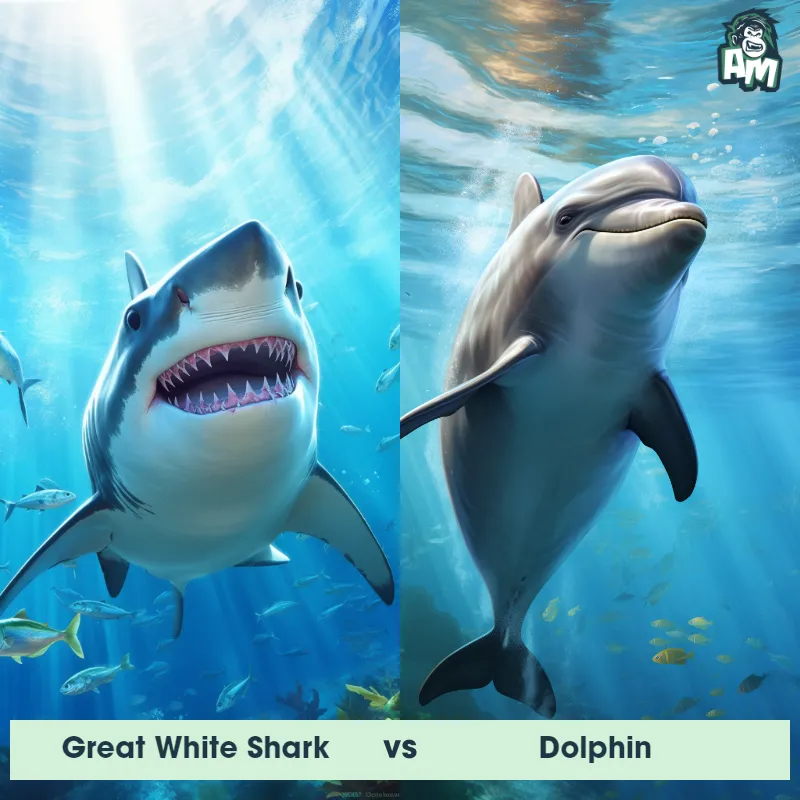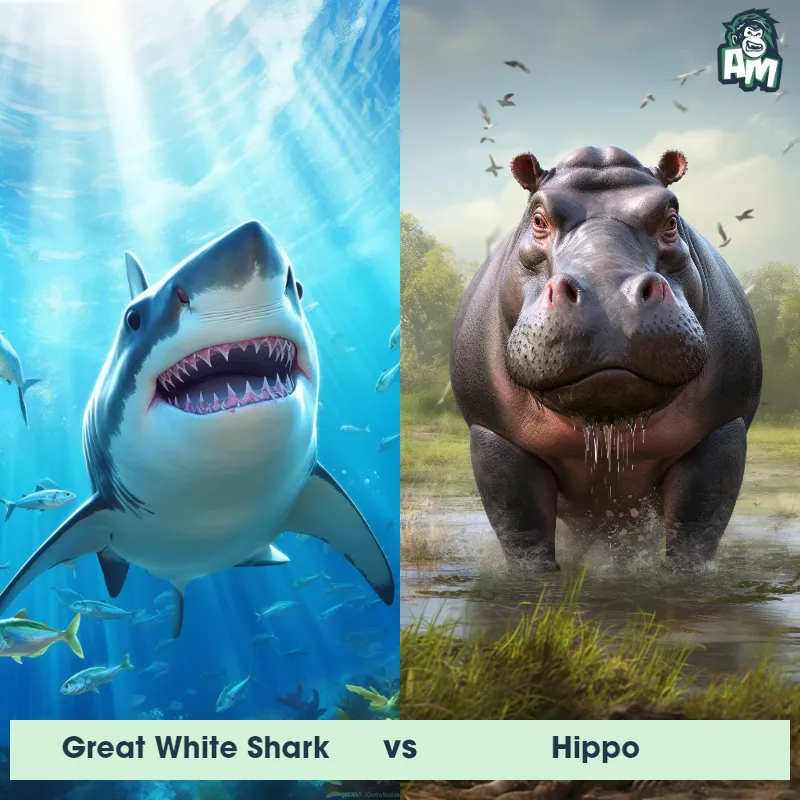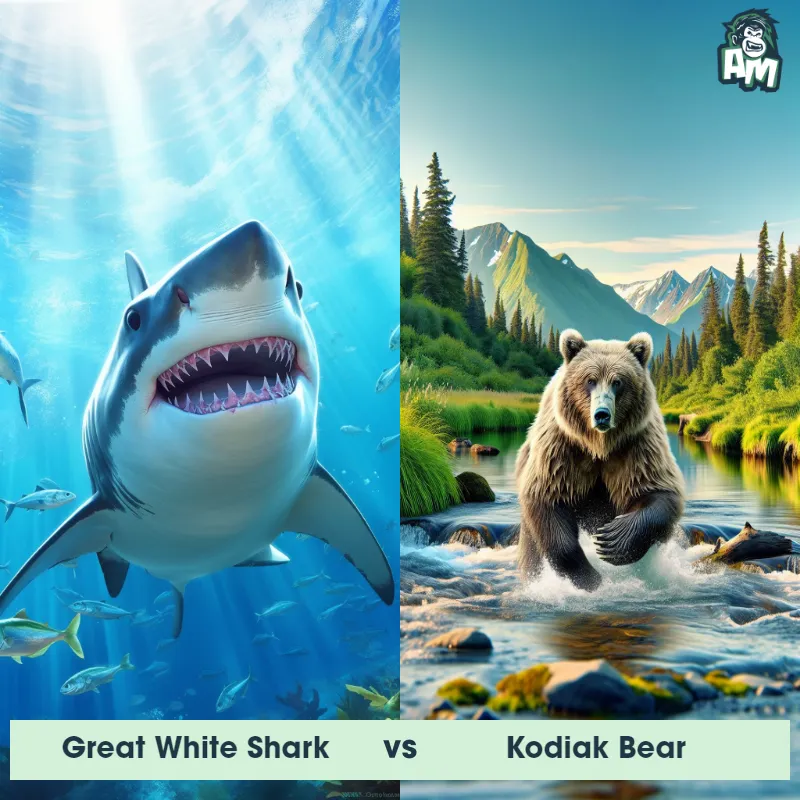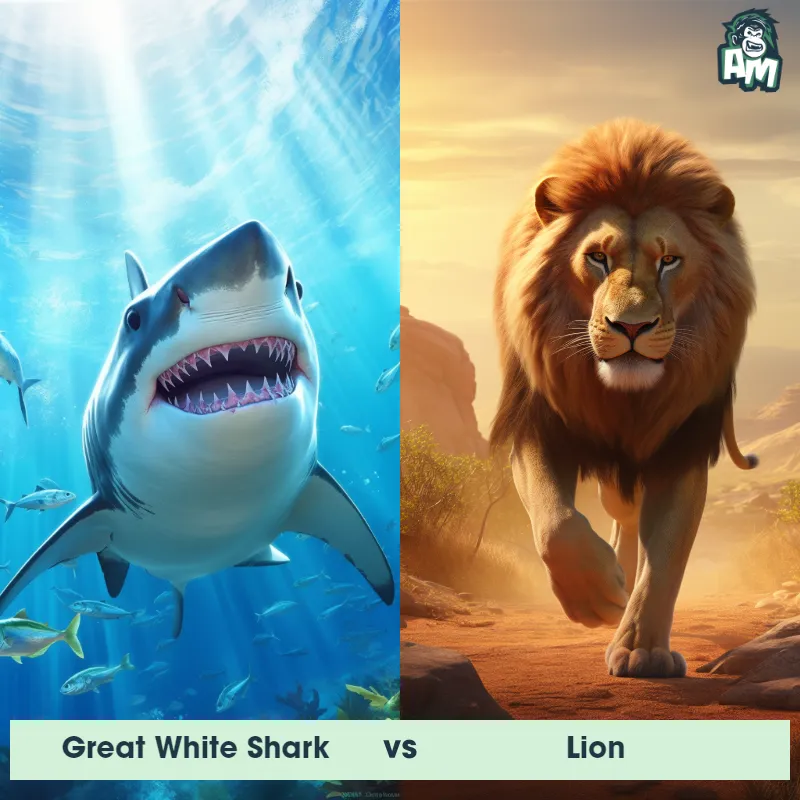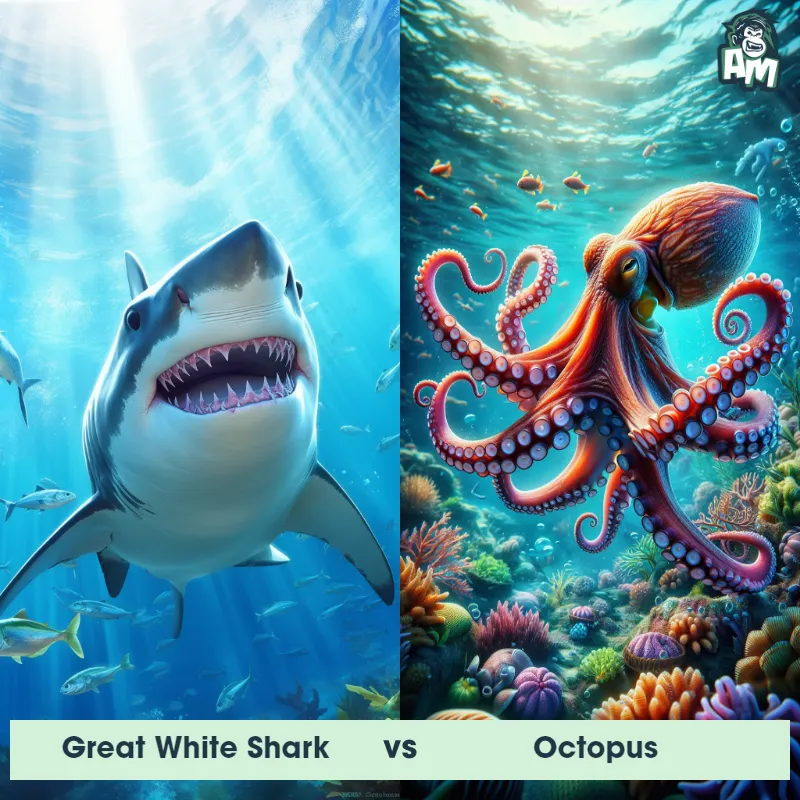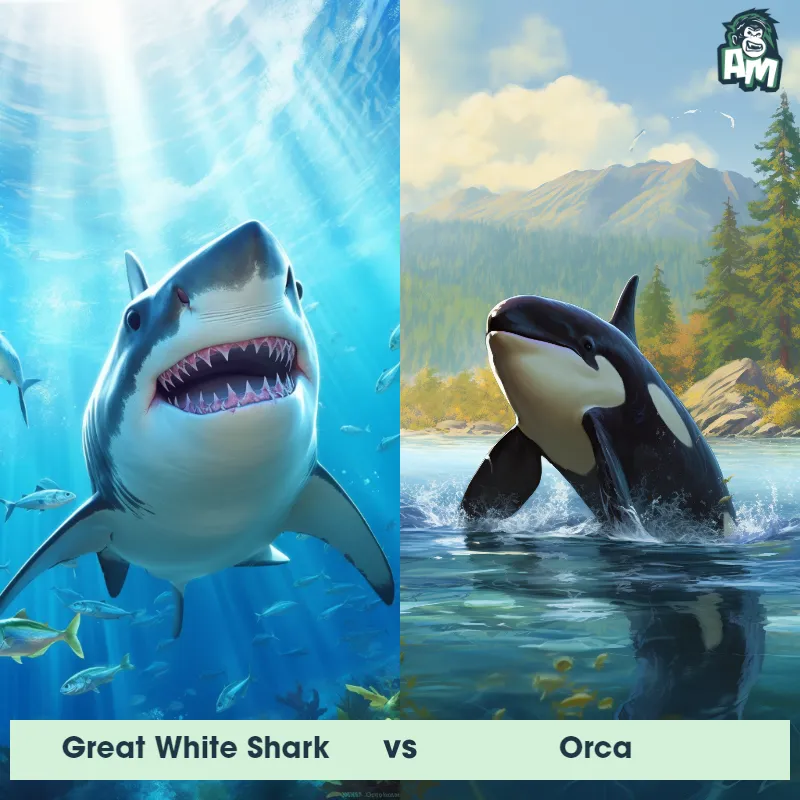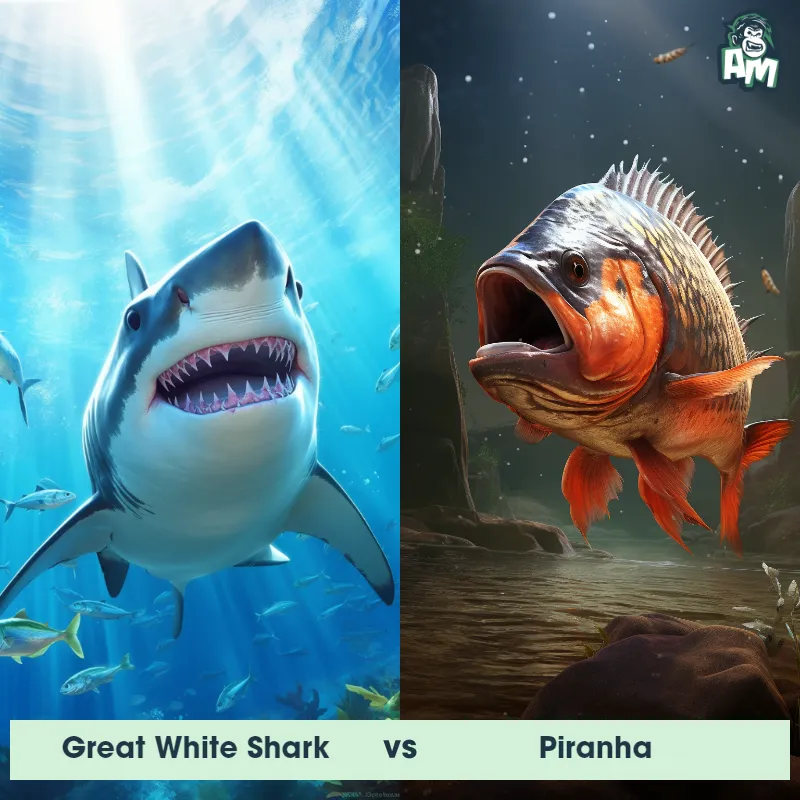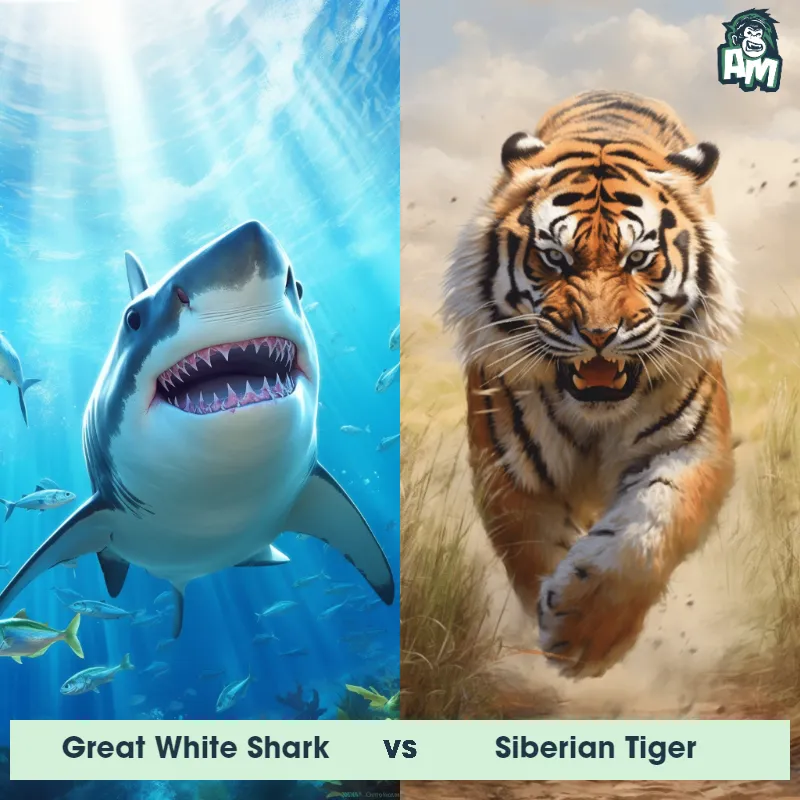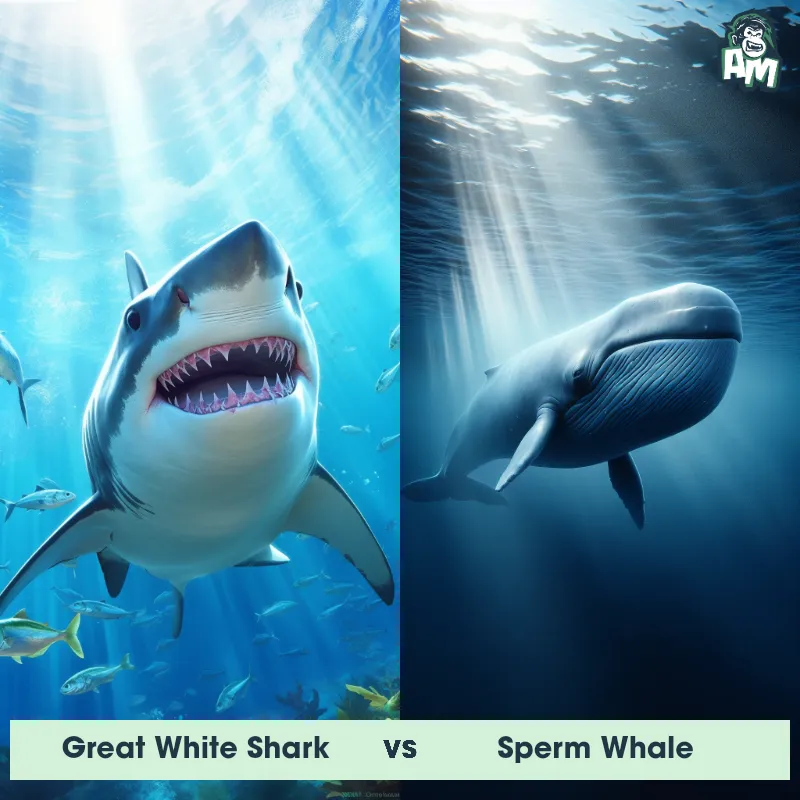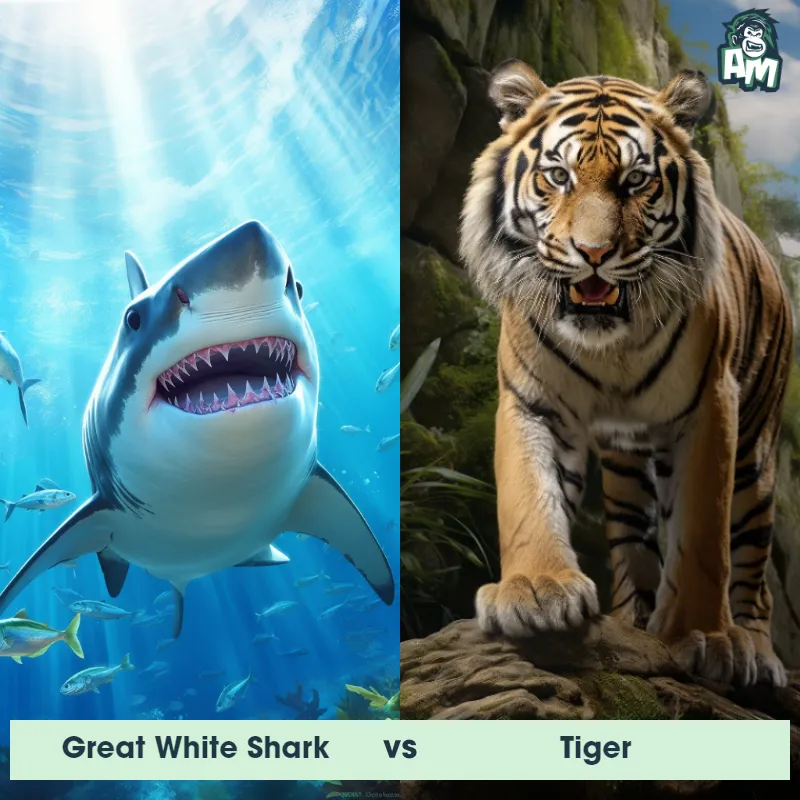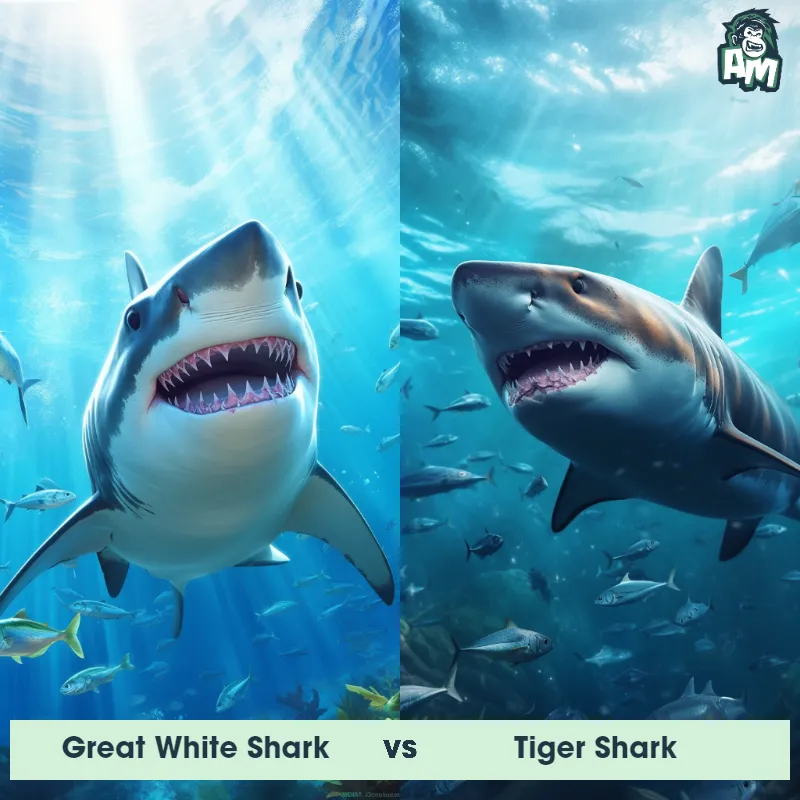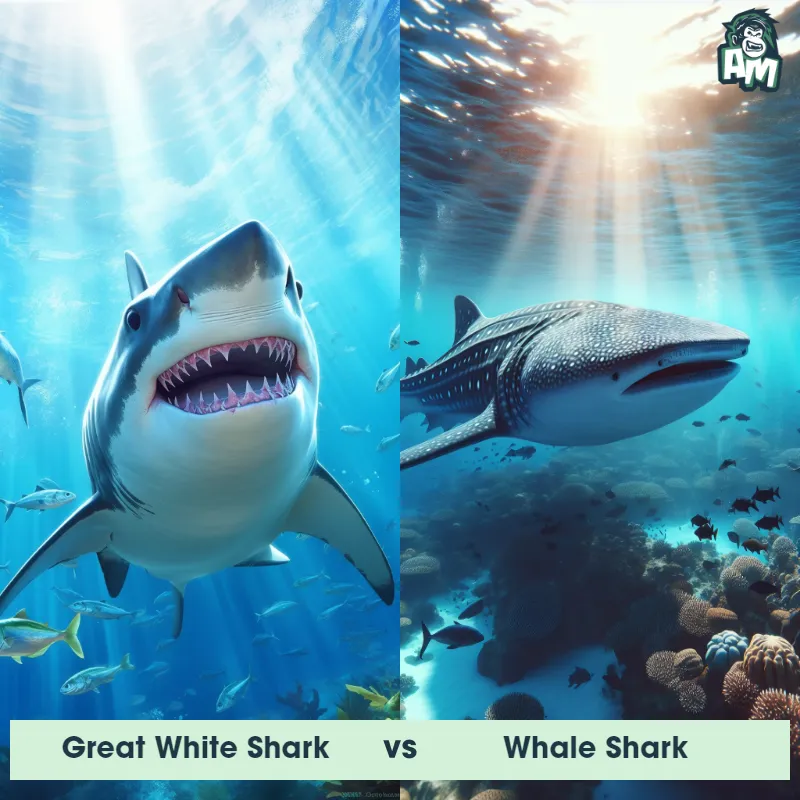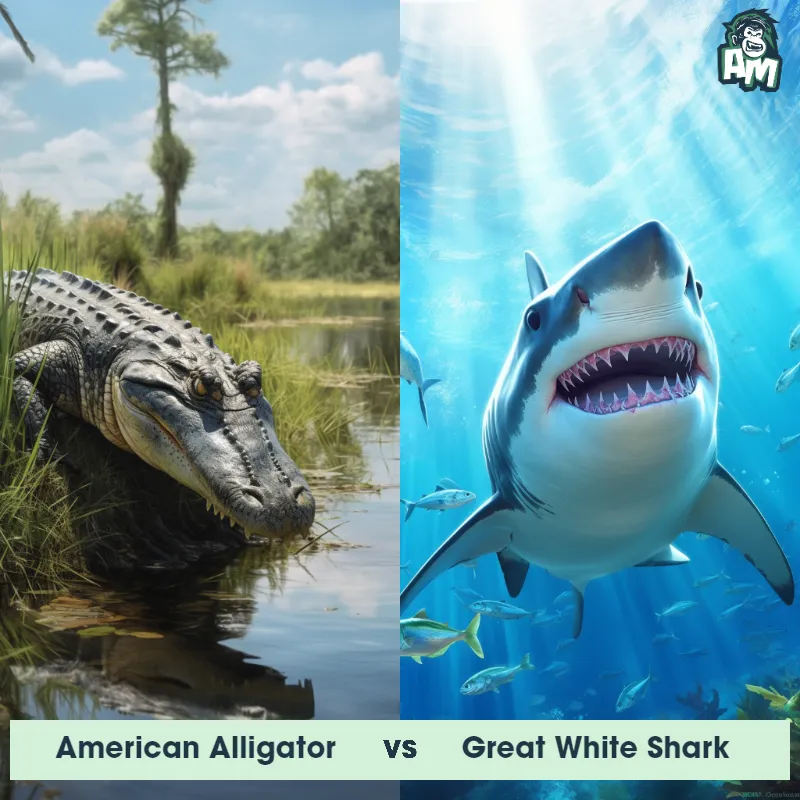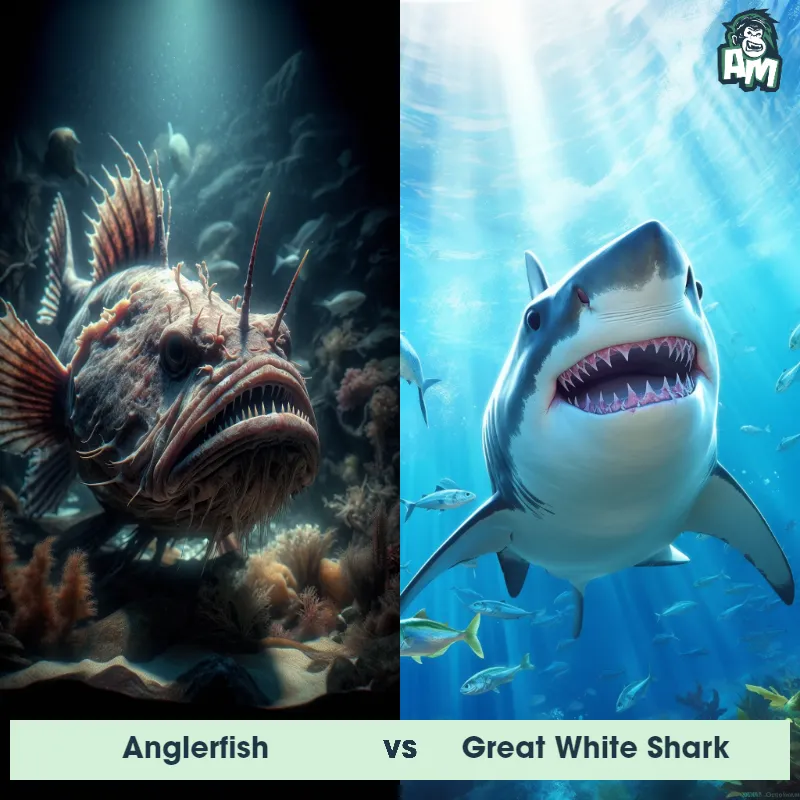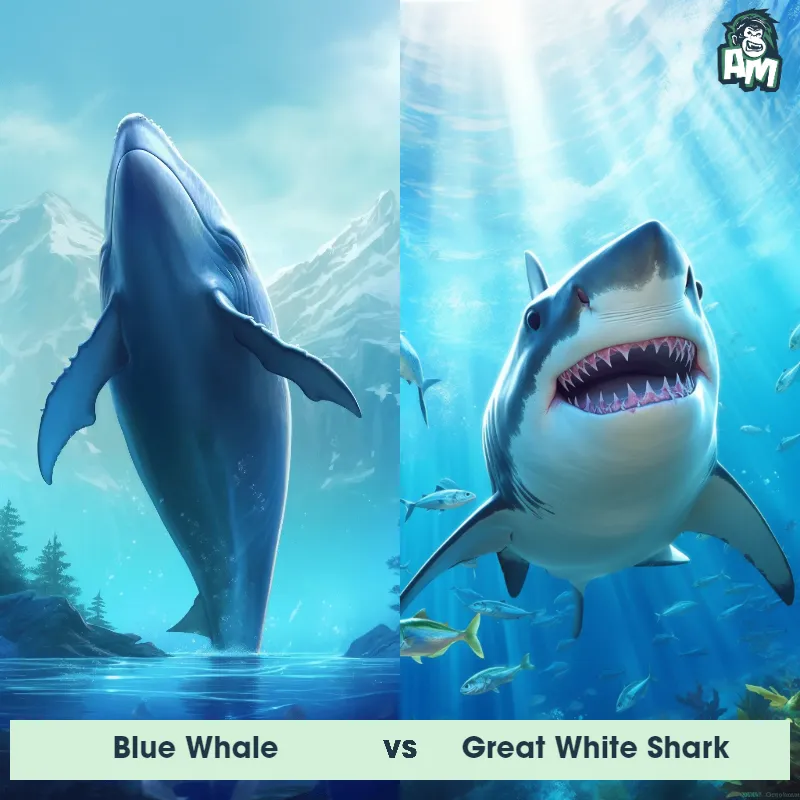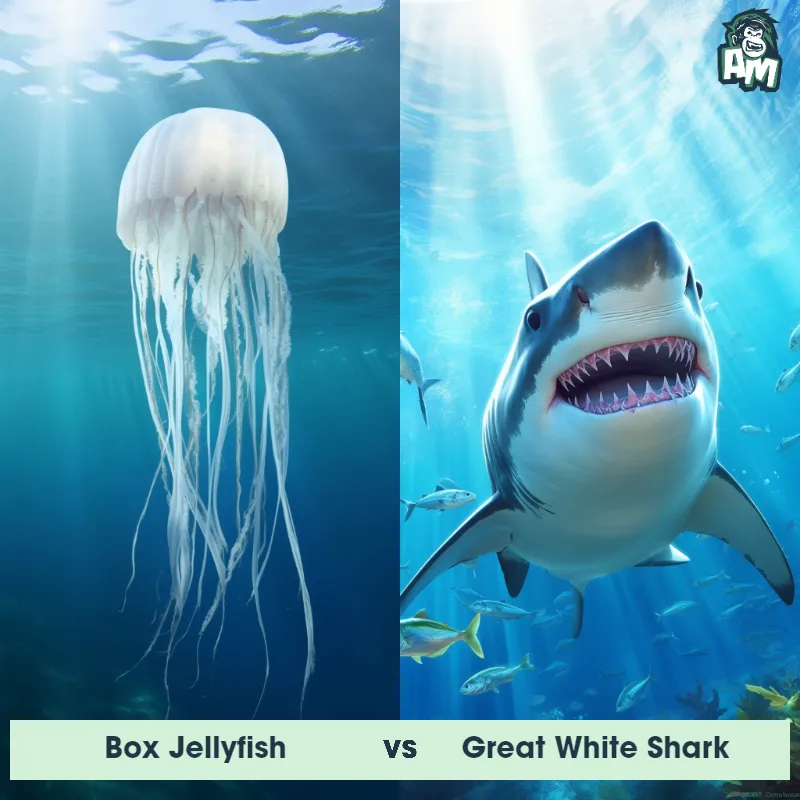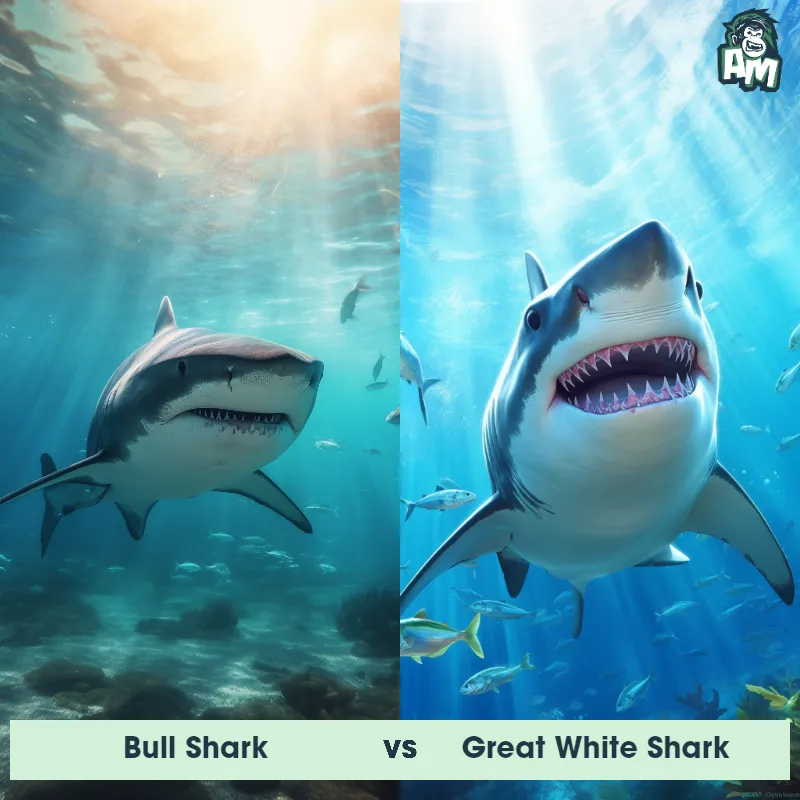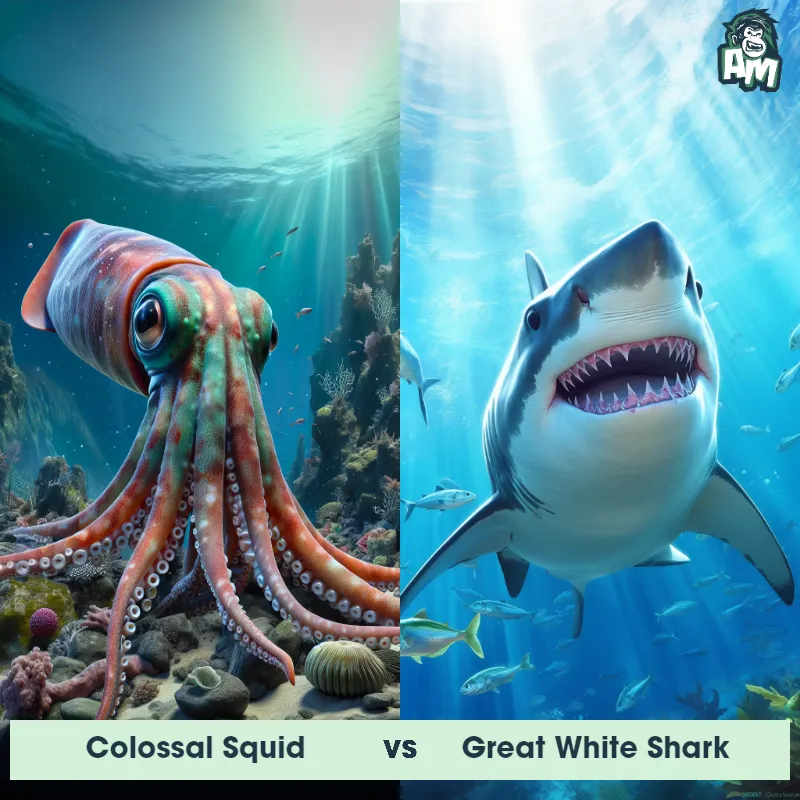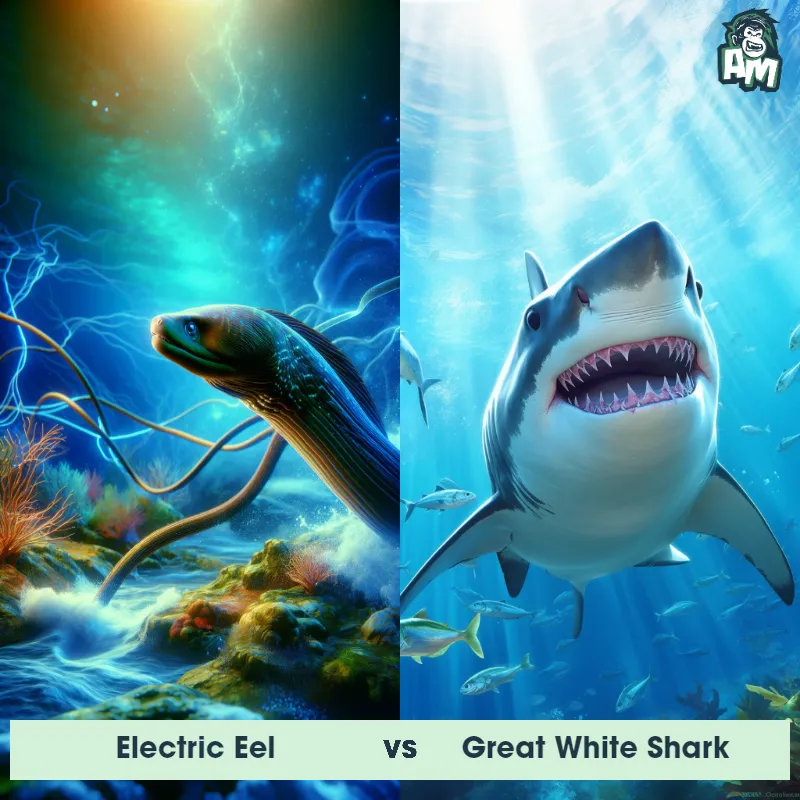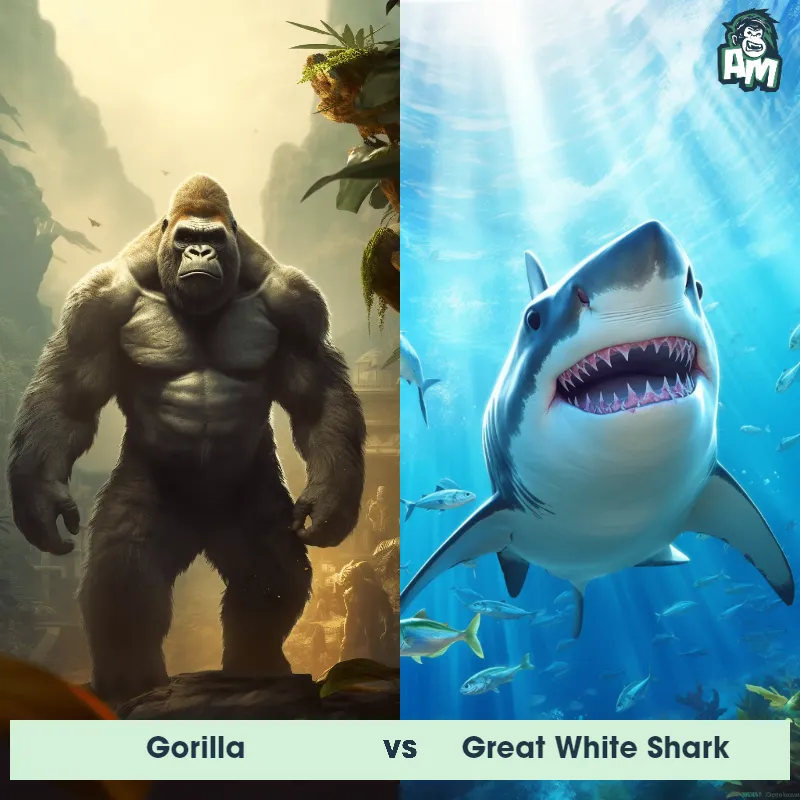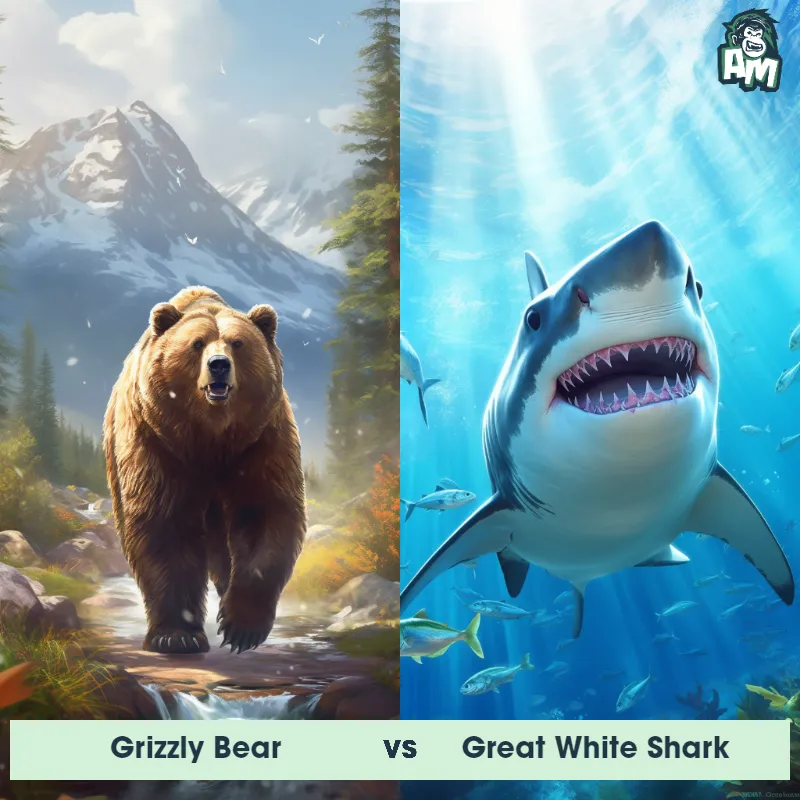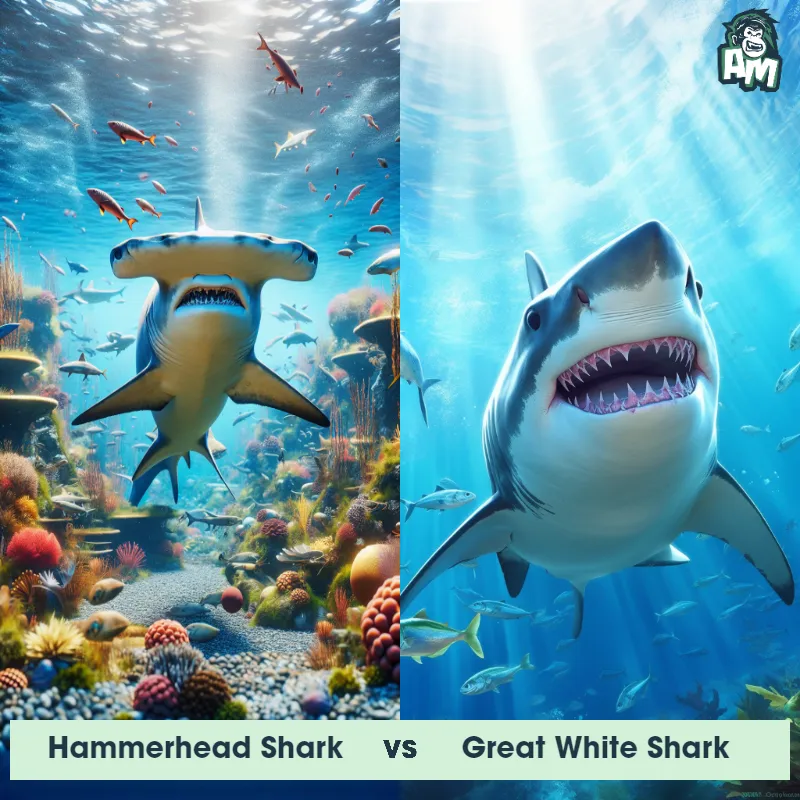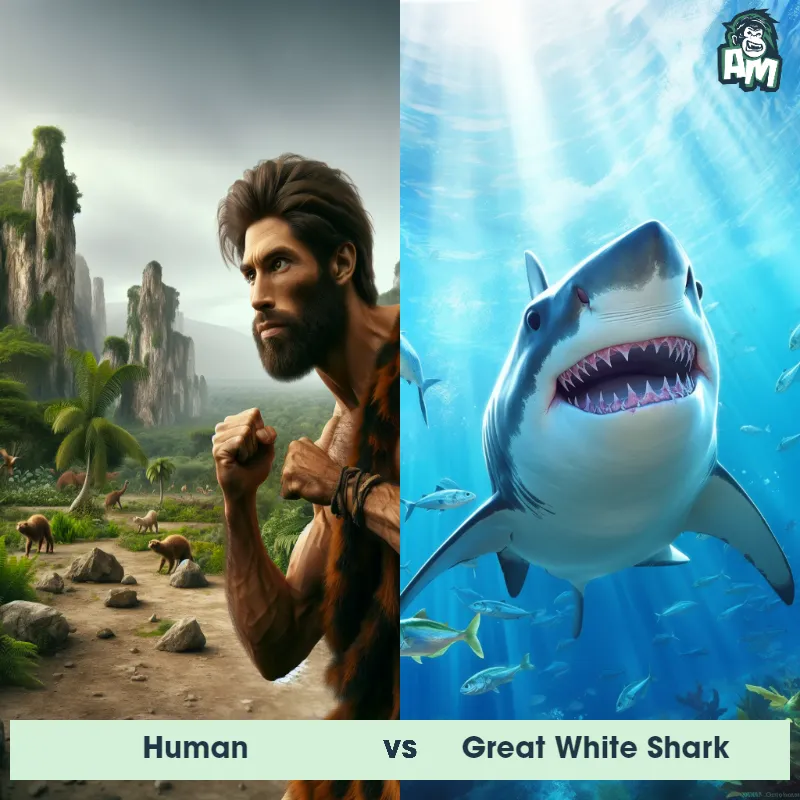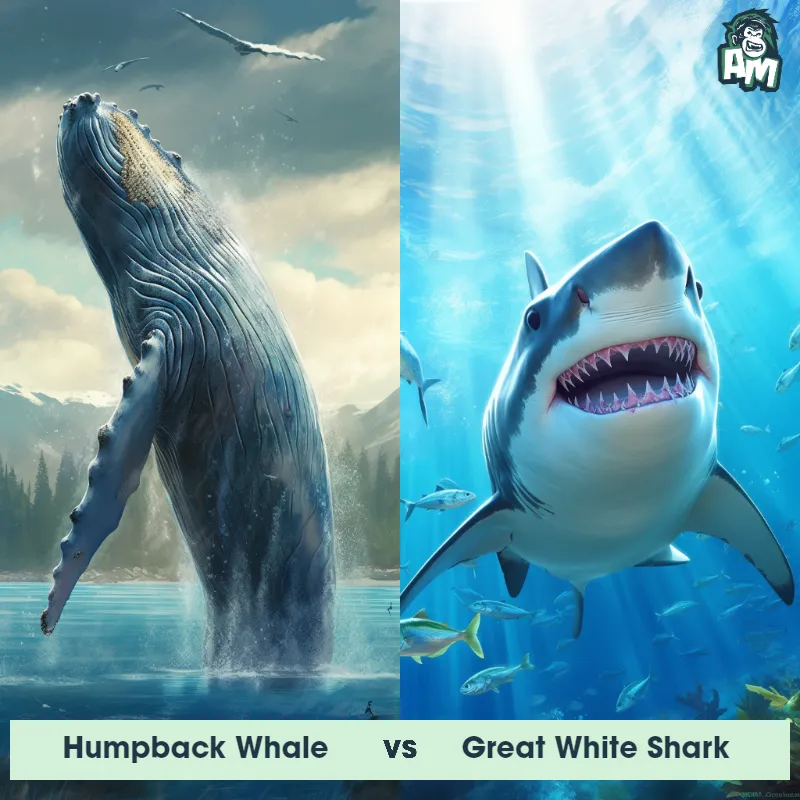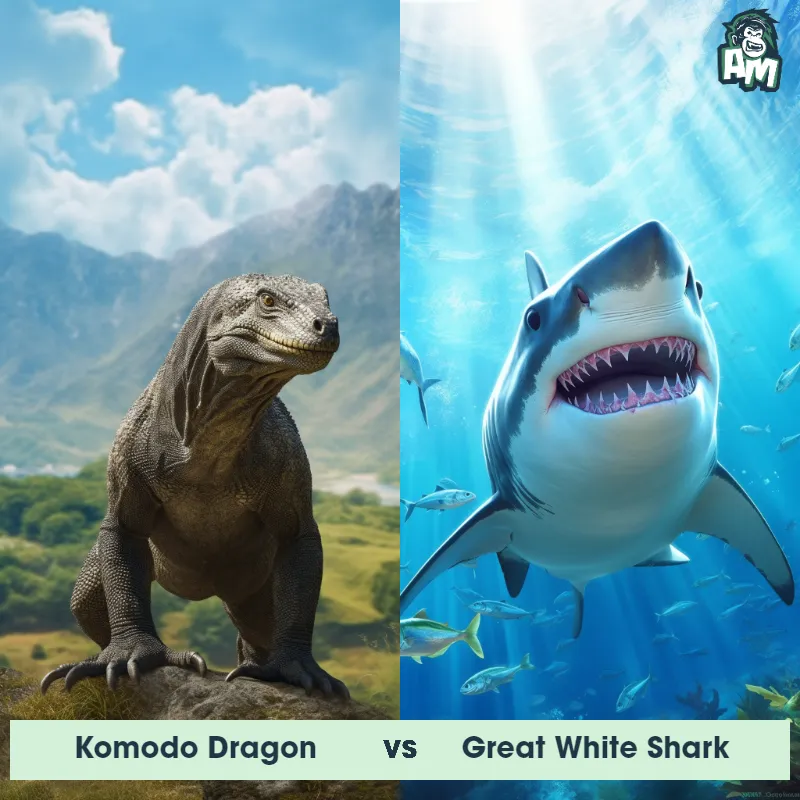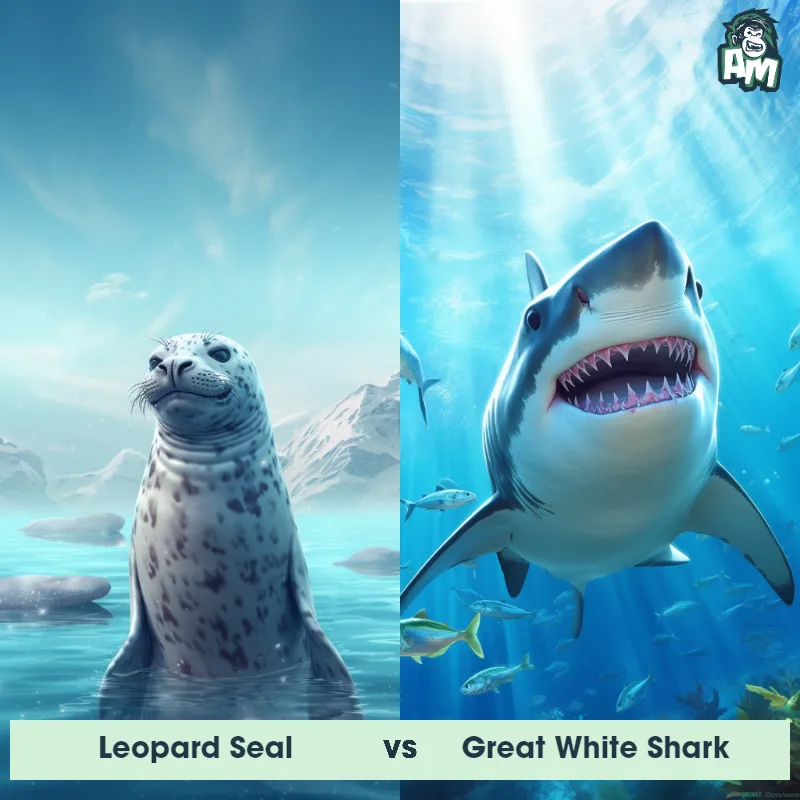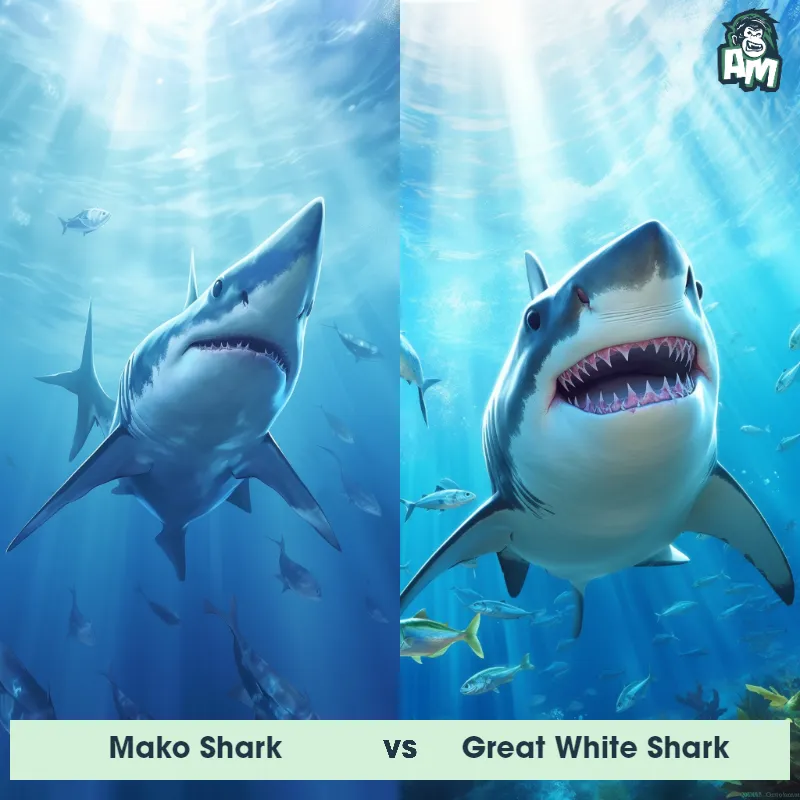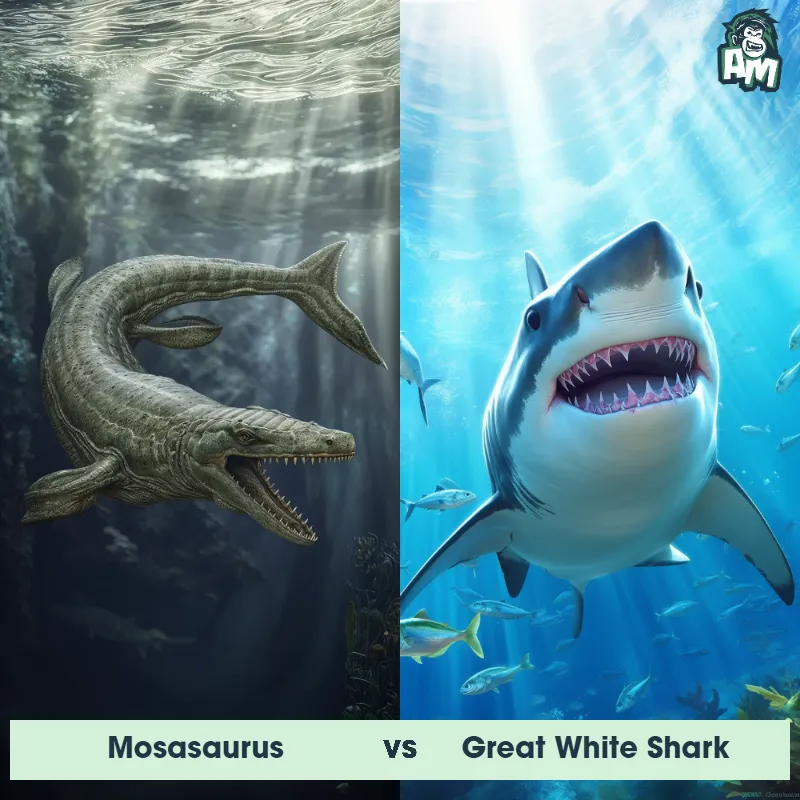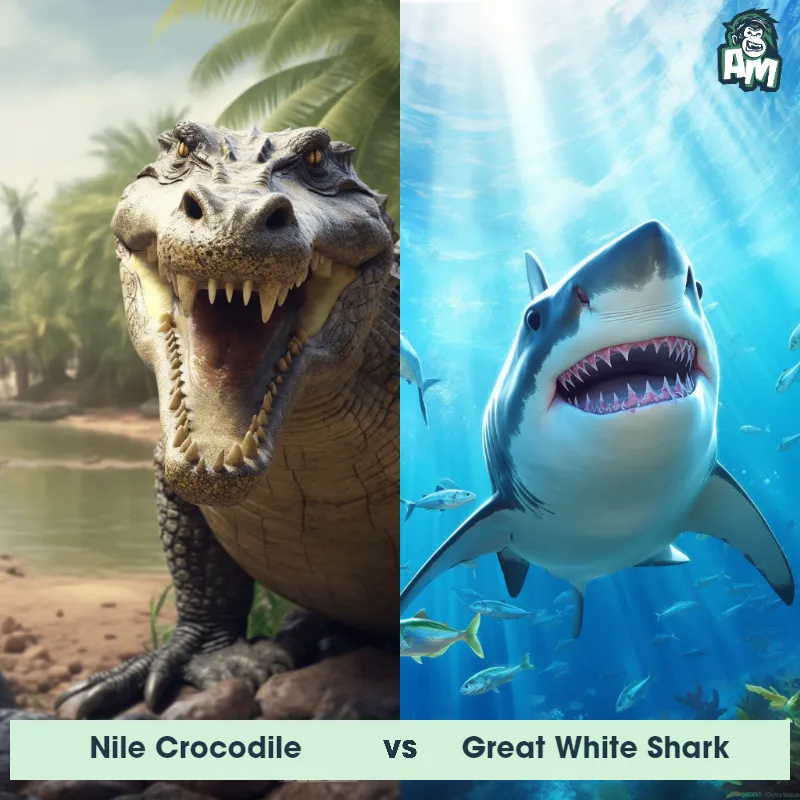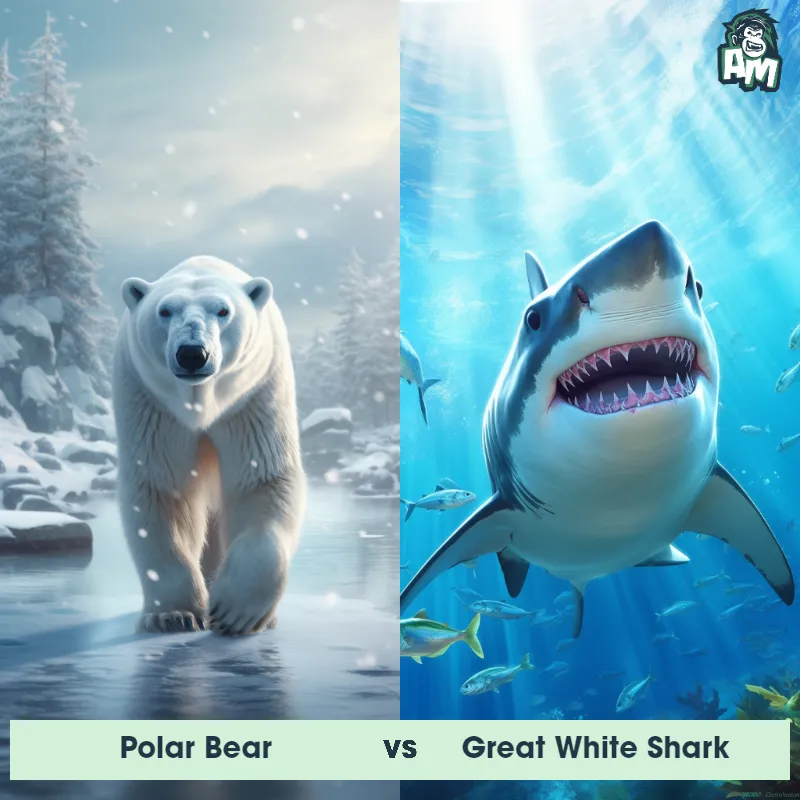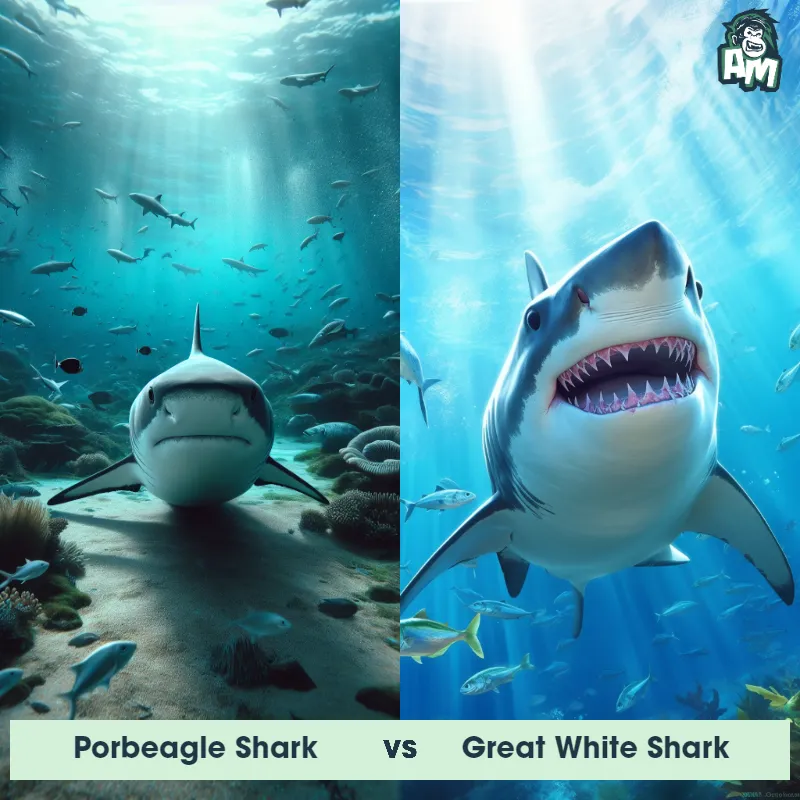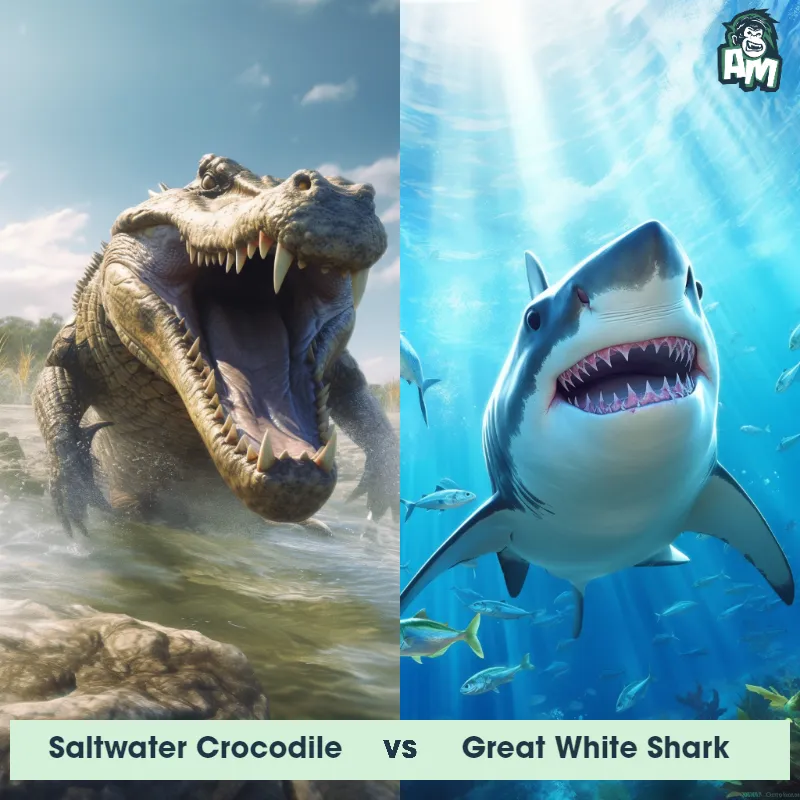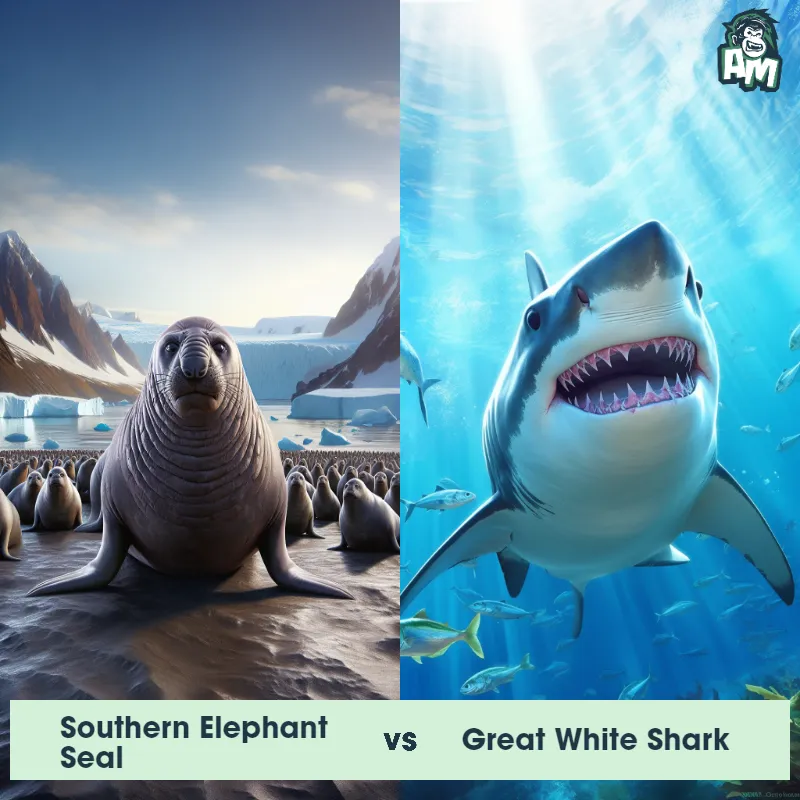The Great White Shark
The Great White Shark, also known as the White Pointer or White Death, is a large and powerful species of shark found in oceans around the world. Known for its fearsome appearance and predatory nature, it has a streamlined body, a pointed snout, and rows of sharp, serrated teeth that can grow up to 2.5 inches long. They typically have a grayish-white color on their dorsal side, which helps them blend in with the ocean surface when stalking prey from below. Great White Sharks are known to reach lengths of up to 20 feet and can weigh up to 5,000 pounds.
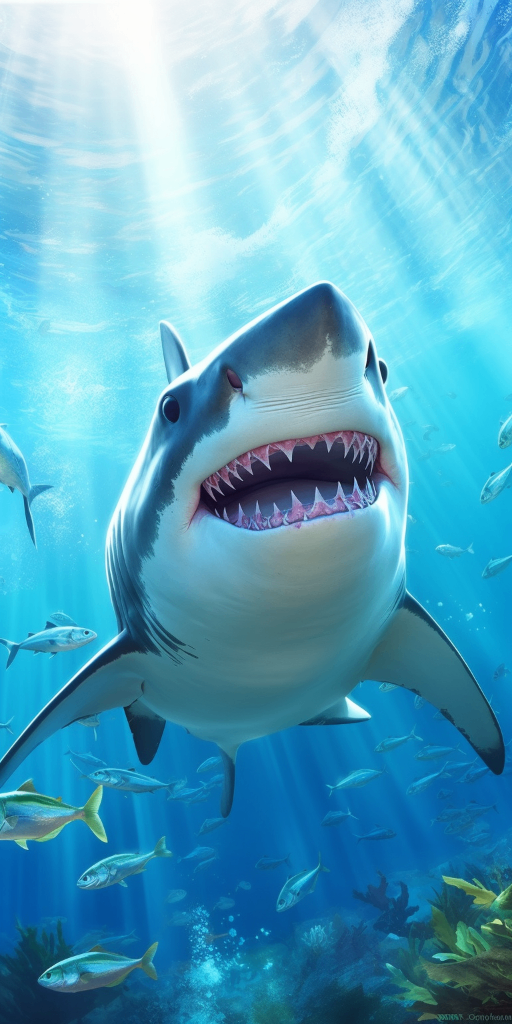
| Great White Shark | |
|---|---|
| Size | Up to 20 feet (6.1 meters) |
| Weight | Over 5,000 pounds (2,268 kilograms) |
| Speed | Speed: 25 mph (40 km/hr) |
| Key Strength | Powerful jaws and sharp teeth |
| Biggest Weakness | Vulnerable gills and eyes |
| Scientific Name | Carcharodon carcharias |
| Family | Lamnidae |
| Habitat | Coastal waters |
| Geography | Worldwide |
| Diet | Carnivorous, primarily seals and sea lions |
| Lifespan | 70 years - 100 years |

The Great White Shark
The Great White Shark, also known as the White Pointer or White Death, is a large and powerful species of shark found in oceans around the world. Known for its fearsome appearance and predatory nature, it has a streamlined body, a pointed snout, and rows of sharp, serrated teeth that can grow up to 2.5 inches long. They typically have a grayish-white color on their dorsal side, which helps them blend in with the ocean surface when stalking prey from below. Great White Sharks are known to reach lengths of up to 20 feet and can weigh up to 5,000 pounds.
Fun Fact: Great White Sharks have the most powerful bite of any shark species, with a bite force that can exceed 4,000 pounds per square inch, allowing them to easily crush the bones of their prey.
| Great White Shark | |
|---|---|
| Size | Up to 20 feet (6.1 meters) |
| Weight | Over 5,000 pounds (2,268 kilograms) |
| Speed | Speed: 25 mph (40 km/hr) |
| Key Strength | Powerful jaws and sharp teeth |
| Biggest Weakness | Vulnerable gills and eyes |
| Scientific Name | Carcharodon carcharias |
| Family | Lamnidae |
| Habitat | Coastal waters |
| Geography | Worldwide |
| Diet | Carnivorous, primarily seals and sea lions |
| Lifespan | 70 years - 100 years |
Match Highlights
Great White Shark Matchups
We use AI to simulate matchups between the Great White Shark and other animals. Our simulation considers size, strength, and natural predatory behaviors to determine the most likely outcome.
Great White Shark: Diet, Predators, Aggression, and Defensive Behaviors
What do Great White Sharks eat?
Great White Sharks are apex predators and have a varied diet that includes fish, seals, sea lions, squid, and even smaller sharks. Great White Shark primarily feed on marine mammals such as seals and sea lions, relying on ambush attacks to catch their prey.
Do Great White Sharks have any predators?
Adult Great White Sharks do not have many natural predators due to their position at the top of the food chain. However, younger sharks may fall prey to larger sharks, such as the Orca (killer whale), which is known to occasionally target Great Whites.
Are Great White Sharks aggressive?
Great White Sharks are often portrayed as aggressive predators, but Great White Shark do not typically view humans as prey. Most encounters between humans and Great Whites are a case of mistaken identity or curiosity. However, Great White Shark can be aggressive if provoked or threatened.
Do Great White Sharks fight?
Great White Sharks are solitary animals and do not engage in social behavior like other shark species. Great White Shark do not actively seek out fights, but Great White Shark will defend themselves if Great White Shark feel threatened or are competing for food.
How do Great White Sharks defend themselves?
Great White Sharks have several defense mechanisms to protect themselves. When feeling threatened, Great White Shark may display aggressive behaviors, such as lunging, chasing, or slashing with their powerful jaws. Great White Shark also have the ability to swim quickly and use their agility to evade predators.
What is Great White Sharks' biggest weakness in a fight?
Despite their strong hunting and defense abilities, Great White Sharks have a vulnerability when it comes to their gills. Their gills are sensitive areas that can be easily injured, causing them to lose their ability to extract oxygen from water. Targeting the gills can impair a Great White's ability to breathe and weaken them in a fight.
Fun Fact: Despite their formidable reputation as apex predators, Great White Sharks have a relatively slow growth rate, with males only becoming sexually mature around 9-10 years old and females around 14-16 years old.
Fun Fact: Great White Sharks are known to breach out of the water, launching themselves completely airborne, which is believed to be a hunting technique to surprise and catch prey near the ocean's surface.



